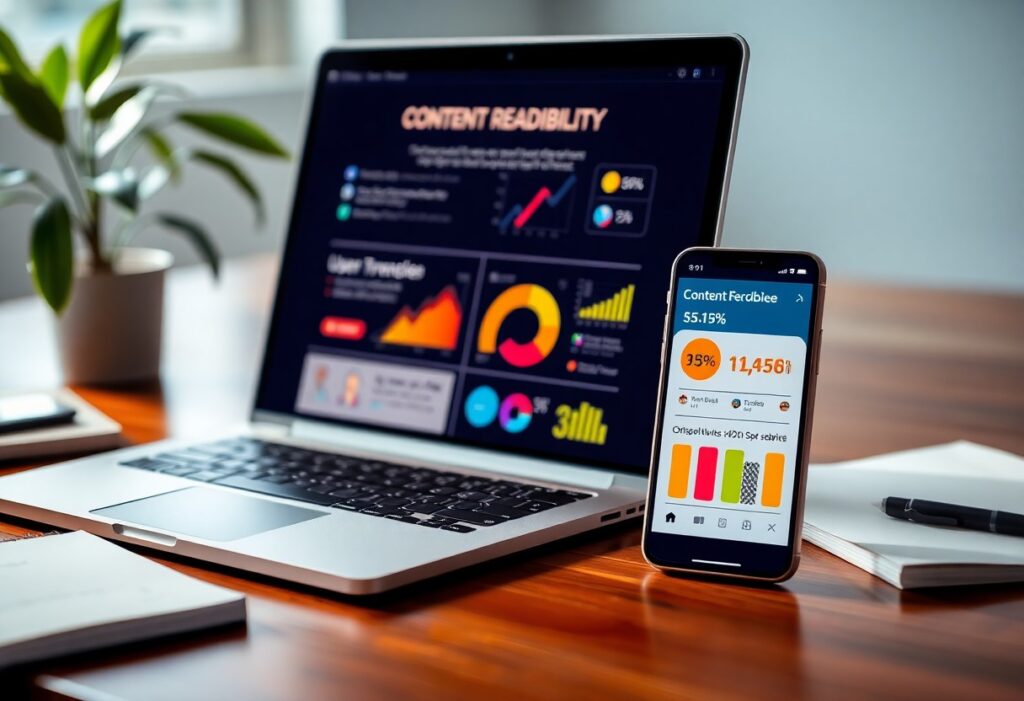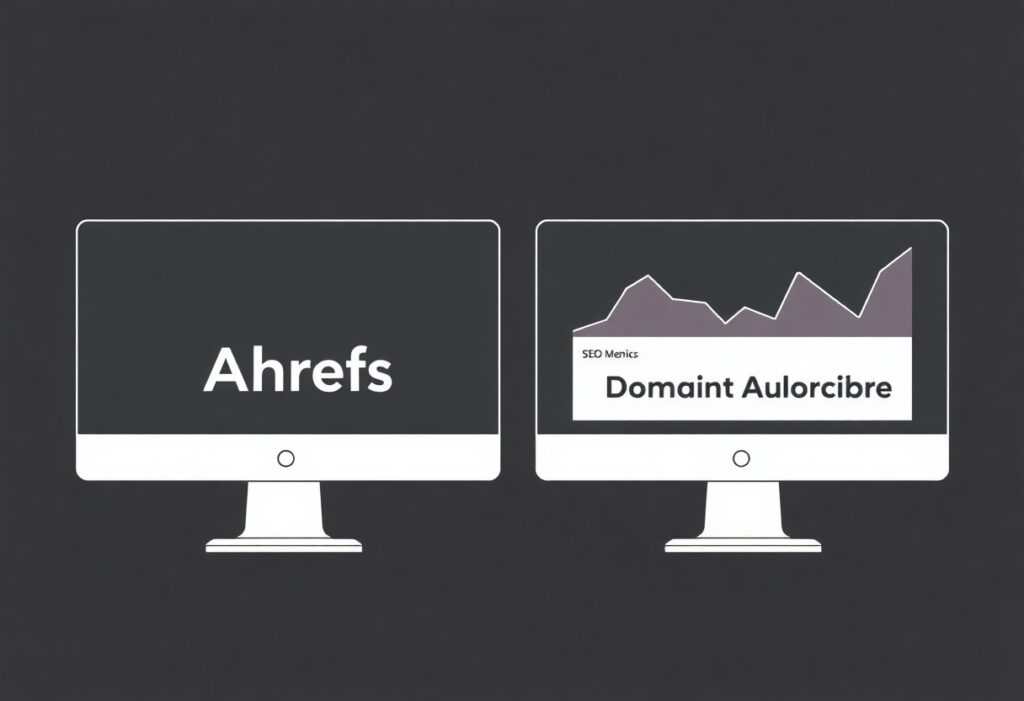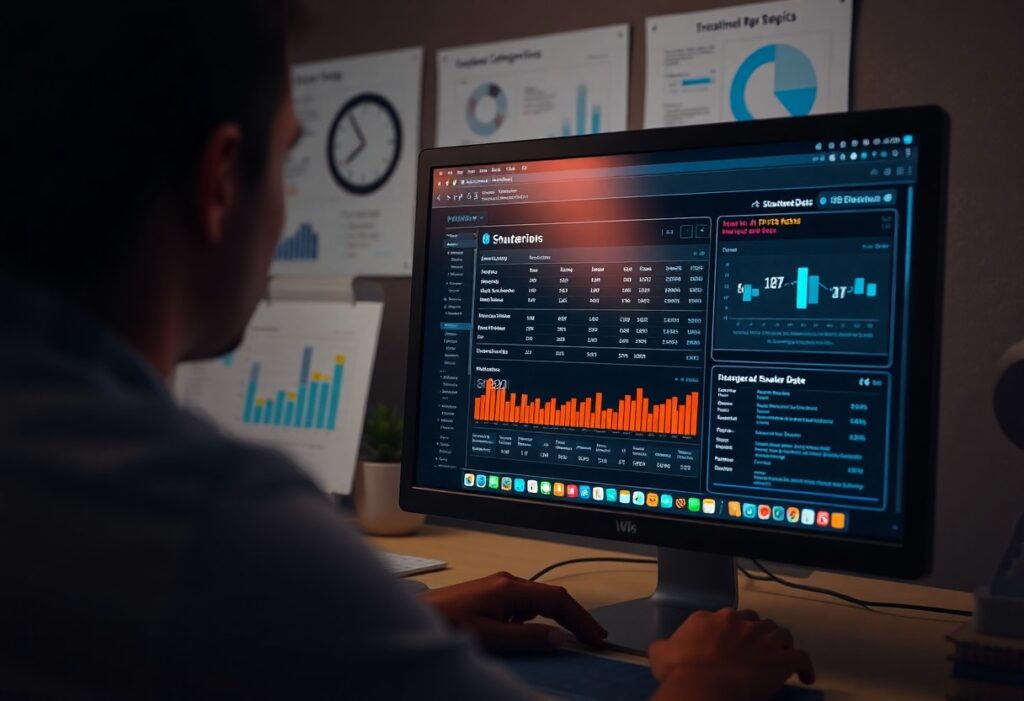Many website owners underestimate the power of Keywords in H1 Tags, but using them effectively can dramatically improve your site’s ranking. Your H1 tag is the first thing search engines and users notice, so optimizing it with relevant keywords enhances your content’s visibility. However, improper usage—such as stuffing too many keywords—can harm your SEO instead of helping. At Rank Authority, we leverage AI-driven strategies to help businesses optimize their H1 tags properly. In this guide, you’ll discover best practices for using Keywords in H1 Tags to boost your rankings while maintaining readability.

Understanding H1 Tags and SEO
The proper use of Keywords in H1 Tags can significantly impact your search engine rankings. H1 tags serve as the primary heading, helping both users and search engines understand the topic of your page. Since search engines prioritize H1 tags in ranking content, strategically placing relevant keywords enhances SEO. Additionally, a well-optimized H1 tag improves readability, making your content more engaging. At Rank Authority, we emphasize AI-driven solutions to maximize H1 tag efficiency, ensuring your business ranks higher. Moreover, combining well-structured headings with relevant keywords strengthens your overall content strategy, giving your site a competitive advantage.
Role of H1 Tags in SEO
Tags play a significant role in SEO by helping search engines determine your content’s relevance. Using Keywords in H1 Tags increases your chances of ranking higher for specific search queries. Additionally, H1 tags enhance the user experience by making your content structured and easy to scan. With Rank Authority’s AI-powered strategies, you can optimize H1 tags effectively to attract both users and search engines. Furthermore, an SEO-friendly H1 tag improves accessibility, ensuring your content appeals to a broader audience. Therefore, crafting keyword-rich H1 tags is an effective way to boost organic traffic and improve site authority.
Difference Between H1 and Other Headings
One key difference between H1 and other headings is their importance in SEO. While all headings enhance readability, H1 tags hold the highest priority for search engines. Additionally, H2 to H6 headings serve as subheadings, organizing content without the same ranking weight as an H1. By strategically using Keywords in H1 Tags, you help search engines understand your page focus immediately. Rank Authority’s AI-enhanced approach ensures proper heading structure, improving both SEO and user engagement. Ultimately, aligning headings effectively improves site hierarchy, making your content more digestible for readers and search engines alike.
Difference in heading levels affects both SEO and readability. Overusing multiple H1 tags or neglecting H1 entirely can harm rankings, as search engines rely on it for content identification. Using Keywords in H1 Tags correctly enhances discoverability and site relevance. Meanwhile, H2 through H6 headings support the structure but do not hold the same search weight. Additionally, a well-structured heading system boosts accessibility, helping users find information quickly. At Rank Authority, we specialize in AI-driven SEO strategies to optimize headings effectively. Thus, ensuring a clear heading hierarchy makes your content not only readable but also highly competitive in search rankings.

Importance of Keywords in H1 Tags
While optimizing your website, using Keywords in H1 Tags plays a vital role in improving SEO. Search engines rely on H1 tags to understand the page content, and incorporating relevant keywords helps boost your site’s visibility. Additionally, H1 tags enhance user experience by clearly outlining the topic of the page. Google and other search engines prioritize structured web pages, so a well-optimized H1 tag strengthens your ranking potential. At Rank Authority, we leverage AI-driven strategies to help business owners optimize their H1 tags effectively. Furthermore, correctly placing your keywords ensures both relevance and readability for search engines and users.
How Keywords Impact Search Rankings
The way you use Keywords in H1 Tags directly influences how search engines rank your content. Placing important keywords in H1 tags signals to Google what your page is about, increasing its chances of appearing for relevant searches. When combined with compelling content, targeted keywords in your headline contribute to higher engagement and lower bounce rates. Additionally, search algorithms use H1 tags to determine keyword relevance, improving ranking potential. Rank Authority’s AI-powered SEO services ensure your headers balance both optimization and readability. Ultimately, well-placed keywords in your H1 tags strengthen your website’s overall search visibility.
Avoiding Keyword Stuffing
Among the biggest SEO pitfalls is overloading your H1 tags with excessive keywords, which can negatively impact rankings. Keyword stuffing makes your content look unnatural and can trigger search engine penalties, reducing your website’s authority. Instead, you should use a single, primary keyword in your H1 tag while keeping the sentence natural and engaging. Rank Authority’s AI-driven tools help identify the right balance between optimization and readability. Moreover, a well-optimized H1 tag retains user interest, ensuring your audience stays engaged rather than bouncing away. A balanced approach guarantees better user experience and stronger SEO performance.
It is important to maintain keyword relevance while avoiding excessive repetition in your Keywords in H1 Tags. Overusing keywords can lead to content that feels forced, reducing readability and user trust. Search engines recognize when an H1 tag sounds unnatural, which can lead to ranking drops. Furthermore, avoiding stuffing ensures your content remains valuable to readers while still signaling relevance to search engines. Rank Authority’s AI-based strategies help businesses strike the right balance, ensuring optimized yet user-friendly H1 tags. Ultimately, a well-crafted headline improves readability while signaling relevance, leading to better search rankings without risking penalties.
Best Practices for Optimizing H1 Tags
Now, using Keywords in H1 Tags effectively can improve your page’s SEO and user experience. To optimize H1 tags, you should focus on keyword placement, readability, and relevance. Additionally, make sure your H1 accurately reflects your content while including targeted keywords naturally. Overstuffing keywords, however, can harm rankings and readability. Instead, structure your headings strategically by keeping them concise and meaningful. Rank Authority recommends keeping your H1 under 60 characters and avoiding duplicate headings. By following these best practices, you enhance your page’s search visibility while keeping your audience engaged.
Choosing the Right Keywords
Before adding Keywords in H1 Tags, you need to conduct thorough keyword research. Focus on high-impact, relevant terms that align with your content and user intent. Additionally, balancing search volume with competition ensures your H1 attracts both search engines and potential visitors. Avoid forcing keywords where they don’t fit naturally—Google prioritizes readability and context. Rank Authority’s AI tools help simplify keyword selection, so you can target the best-performing phrases. By choosing the right keywords, you set your content up for stronger rankings and better user engagement on your website.
Maintaining Readability and Relevance
Choosing Keywords in H1 Tags strategically means maintaining a balance between search optimization and user experience. Your headings should be clear, engaging, and aligned with the page’s purpose. Additionally, avoid stuffing multiple keywords into one heading—this can overload the reader and negatively impact rankings. Instead, use natural phrasing that keeps the H1 reader-friendly while still including crucial keywords. Rank Authority suggests structuring your headings to flow smoothly with the rest of your content, ensuring both relevance and easy comprehension.
In fact, search engines now prioritize readability just as much as keyword placement. If your Keywords in H1 Tags feel unnatural, visitors may leave your page, which hurts your engagement metrics. Additionally, Google’s algorithms analyze content contextually, so keyword stuffing doesn’t provide ranking advantages. On the other hand, using a well-structured H1 enhances usability and improves ranking potential simultaneously. Rank Authority’s AI ensures your headings remain relevant while still driving traffic. Ultimately, engaging H1 tags lead to a better user experience and stronger search performance.

Common Mistakes to Avoid
Once again, using Keywords in H1 Tags effectively requires strategy. Many website owners make errors that hurt their SEO rather than improve it. To succeed, you need to avoid mistakes such as keyword stuffing, improperly formatted tags, and neglecting user intent. At Rank Authority, we see these errors frequently, and they can lower your rankings instead of boosting them. While well-placed keywords improve visibility, misusing them leads to poor user experience. By learning what to avoid, you ensure your H1 tags work for both search engines and website visitors.
Using Multiple H1 Tags Incorrectly
Against best practices, some websites use multiple H1 tags on a single page, thinking it improves rankings. However, search engines rely on a clear structure, and too many H1s create confusion. While search engines can handle multiple H1s today, sticking to one primary tag strengthens your content’s relevance. If you need additional headings, use H2 and H3 tags instead. Optimizing a single H1 tag with well-placed Keywords in H1 Tags simplifies your page hierarchy. At Rank Authority, we recommend keeping your headings structured for easy readability and effective SEO.
Ignoring User Intent
To improve your rankings, your Keywords in H1 Tags must align with what users are searching for. Focusing only on search engines without considering user intent results in lower engagement. If visitors feel misled, they leave your site quickly, increasing your bounce rate. Instead, craft your H1 tags based on what readers expect. By satisfying search intent, you not only rank higher but also build trust with your audience. Rank Authority helps businesses optimize for both SEO and user experience, ensuring long-term success.
Consequently, failing to match search intent can negatively impact your conversions. Search engines prioritize web pages that align with user expectations, so forcing keywords without natural relevance is ineffective. Your audience clicks on your site seeking answers, and an irrelevant H1 tag pushes them away. Instead, write headers that provide immediate clarity while incorporating Keywords in H1 Tags naturally. This way, users stay engaged, and search engines recognize the value you offer. To succeed, always balance SEO strategy with a user-centered approach.
Implementing H1 Tags for Different Content Types
Unlike generic headings, using Keywords in H1 Tags adapts to various content forms, improving both readability and SEO. Each content type benefits from structured headers, ensuring search engines and users easily understand the topic. Consider the following:
| Content Type | H1 Implementation |
|---|---|
| Blogs & Articles | Use a descriptive H1 with primary keywords |
| E-Commerce Pages | Include product-related keywords for ranking |
| Landing Pages | Create an engaging, keyword-rich H1 |
| Service Pages | Highlight business-specific keywords |
| News & Updates | Use current trends to shape H1 tags |
After optimizing your headers correctly, your website improves in both user engagement and search performance.
Blogs and Articles
Along with engaging content, using Keywords in H1 Tags helps structure your blogs for better visibility. Your H1 should be clear and compelling, describing the article in a way that matches search intent. Additionally, it should contain a primary keyword naturally. SEO benefits when you create concise yet powerful titles that address user queries. Including relevant long-tail keywords strengthens indexing. After implementing structured headings, your blog posts become more accessible, improving both user experience and rankings.
E-Commerce and Product Pages
Above all, integrating Keywords in H1 Tags on e-commerce pages directly influences product discoverability. Your H1 should clearly define what the product is while incorporating primary keywords. Specific, keyword-rich headings enhance search visibility, making products easier to find on Google. E-commerce pages rely on clear, structured H1 tags to attract potential buyers. After applying high-quality H1s, your product pages gain better engagement, leading to increased conversions.
Content on e-commerce pages must be well-structured, ensuring potential buyers quickly understand product offerings. Furthermore, using precise and descriptive keywords in H1 tags improves indexing and ensures users find exactly what they need. Search engines use H1s to categorize your pages efficiently. However, without strategic keyword placement, rankings may suffer. After refining your headings, Rank Authority ensures your product pages stay competitive.
Analyzing and Improving H1 Performance
Not all Keywords in H1 Tags perform the same way, so you need to analyze and optimize them regularly. Search engines and users both rely on well-structured headings to determine content relevance. However, if your H1 tag isn’t driving traffic or engagement, adjustments are necessary. By tracking performance metrics such as CTR and bounce rates, you can identify when an H1 tag needs refinement. Additionally, structured testing—such as A/B testing—helps ensure your changes improve ranking without unintended consequences. At Rank Authority, we recommend a data-driven approach to consistently enhance visibility and maximize SEO benefits.
Using SEO Tools for Optimization
Against guessing, SEO tools provide clear insights into how your Keywords in H1 Tags impact search rankings. With platforms like Google Search Console, Ahrefs, and SEMrush, you can measure keyword effectiveness, competition, and search intent. Additionally, AI-powered tools such as those offered by Rank Authority help you refine heading structures based on real-time data. Moreover, by identifying underperforming H1s, you avoid wasted optimization efforts. Rather than making arbitrary changes, these tools enable you to implement strategic improvements that align with industry best practices. Therefore, consistent tracking using SEO tools ensures long-term ranking success.
Adjusting H1 Tags Based on Analytics
Behind every effective Keywords in H1 Tags implementation is strategic analysis. Reviewing analytics regularly allows you to determine which H1 tags attract more visitors and which need refinement. High bounce rates or low click-through rates indicate that your heading may not be aligned with search intent. Additionally, integrating user behavior with keyword performance ensures higher engagement. At Rank Authority, we emphasize data-led modifications rather than assumptions. Importantly, refining headings based on analytics helps improve visibility without compromising readability. However, avoid frequent unnecessary changes that may disrupt indexing and lead to ranking instability.
Due to continuous algorithm updates, adjusting Keywords in H1 Tags based on analytics is vital for sustained success. An H1 tag that ranks well today may not perform the same way in a few months. By evaluating page performance through heatmaps, click metrics, and dwell time, you can tweak headings for better retention. Additionally, testing how subtle modifications impact performance provides insight into how search engines interpret your content. Rank Authority’s AI-driven tools assist businesses in making data-backed, precise alterations to H1 tags. Therefore, leveraging analytics to adjust headings ensures long-term SEO stability and a competitive advantage.
To Wrap Up
Hence, using Keywords in H1 Tags effectively improves your website’s SEO and enhances its visibility in search results. By strategically placing relevant keywords in your H1, you help search engines understand your content while keeping it user-friendly. Moreover, balancing readability with optimization ensures a positive user experience. Additionally, focusing on relevance, uniqueness, and clarity in your H1 tag strengthens your search rankings. At Rank Authority, we use AI-powered SEO strategies to help you maximize your online presence. Therefore, applying these techniques to your H1 tags will boost your chances of higher rankings and improved website traffic.













